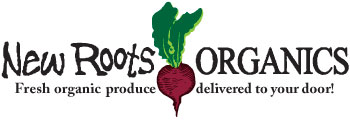Updated November 8, 2012
A Response from Our Own, Carolyn Boyle:
Unfortunately Prop 37 did not pass.
In my opinion, I strongly believe that produce grown with GMO’s, and consequently processed food made with it, should be labeled as such. I think consumers should have the right to know what is in the food they are purchasing so they can make an informed decision about what they eat. Just as it became mandatory for processors to let consumers know if their food contained MSG, they should also label GMO’s.
Hopefully, the Organic Trade Association can continue to keep GMO’s out of organic produce and the foods made with them.
—–
Original Post – November 6:
It is that time again that only comes around every four years. Who will we vote to be our nation’s leader for the next four years? And locally, what propositions are looking to change the way we currently make decisions? In California, voters will be determining whether labeling GMO products will be mandated or not. A simple matter, this may effect more than just Golden State residents.
According to the Official Voter’s Guide of California, Proposition 37 “requires labeling of food sold to consumers made from plants or animals with genetic material changed in specified ways. Prohibits marketing such food, or other processed food, as “natural.” Provides exemptions. Fiscal Impact: Increased annual state costs from a few hundred thousand dollars to over $1 million to regulate the labeling of genetically engineered foods. Additional, but likely not significant, governmental costs to address violations under the measure.”
The nitty gritty.
Retailers (such as grocery stores) would be primarily responsible for complying with the measure by ensuring that their food products are correctly labeled. Products that are labeled as GE would be in compliance. For each product that is not labeled as GE, a retailer generally must be able to document why that product is exempt from labeling. There are two main ways in which a retailer could document that a product is exempt: (1) by obtaining a sworn statement from the provider of the product (such as a wholesaler) indicating that the product has not been intentionally or knowingly genetically engineered or (2) by receiving independent certification that the product does not contain GE ingredients. Other entities throughout the food supply chain (such as farmers and food manufacturers) may also be responsible for maintaining these records. The measure also excludes certain food products from the above labeling requirements. For example, alcoholic beverages, organic foods, and restaurant food and other prepared foods intended to be eaten immediately would not have to be labeled. Animal products—such as beef or chicken—that were not directly produced through genetic engineering would also be exempted, regardless of whether the animal had been fed GE crops.
In addition, the measure prohibits the use of terms such as “natural,” “naturally made,” “naturally grown,” and “all natural” in the labeling and advertising of GE foods. Given the way the measure is written, there is a possibility that these restrictions would be interpreted by the courts to apply to some processed foods regardless of whether they are genetically engineered.
What does it mean?
Proposition 37 gives Californians the right to know what is in the food we eat and feed to our families. It simply requires labeling of food produced using genetic engineering, so we can choose whether to buy those products or not. We have a right to know.
Prop. 37 would: create new government bureaucracy costing California taxpayers millions, authorize expensive shakedown lawsuits against farmers and small businesses, and increase family grocery bills by hundreds of dollars per year.
How will it effect the country?
According to SHAPE Magazine, “Currently more than 50 counties around the globe, including India, all of Europe, Japan, and China require GMO labeling, and polls in the U.S. reveal that more than 90 percent of Americans want to know if a food contains GM ingredients. If Prop 37 passes, the Golden State will be the first in the nation to require a GM identifier.
If the prop passes, it will likely have a ripple effect, including ballot initiatives in other states. In addition, some analysts say food companies will not want to make a different set of products for California, which could mean labels on foods that contain GM ingredients nationwide.”
Want to learn more about Prop 37 and its national effects? Check out an article from The New York Times that digs even deeper.




